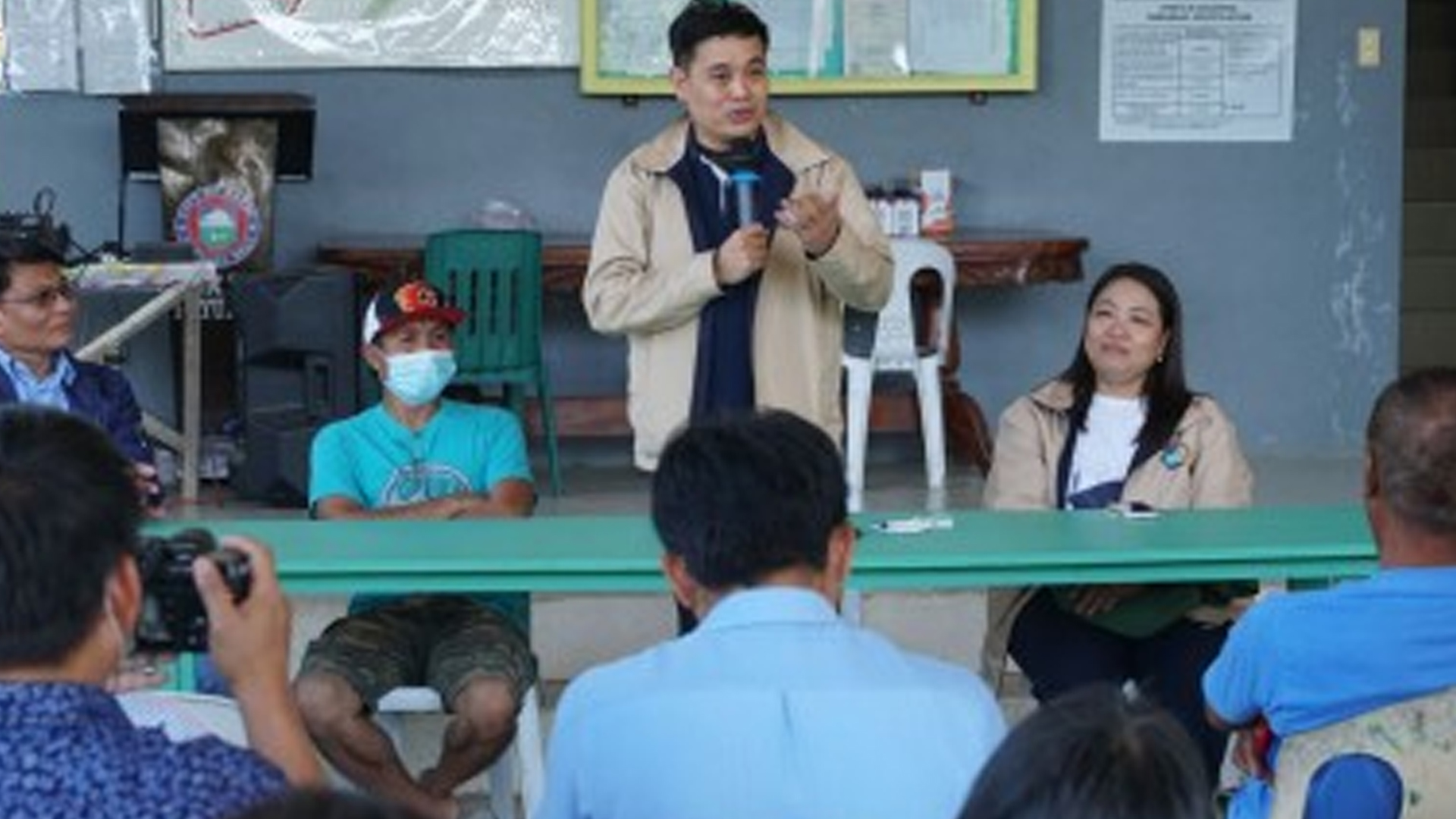The Climate Change Commission (CCC) on Monday vowed to continue boosting cooperation with various sectors to help the country achieve climate-resilient agriculture practices.
CCC Vice Chairperson and Executive Director (VCED) Robert Borje made this remark following his meeting with the farming community in Barangay Rayuray in Batac town, Ilocos Norte province to discuss their observations on environment and climate-related concerns in the area.
During the meeting and walkthrough at the site, the farmers explained how water shortage affected their agricultural productivity.
“Nakadepende sa ulan ang supply ng tubig dito sa ’min. Dahil sa pagbabago ng klima, paiba-iba rin ang panahon kung kailan malakas o mahina ang tubig at dahil dito ay naaapektuhan ang aming mga pananim (The water supply here depends on the rain. Due to climate change, the time when the water is strong or weak also varies and because of this, our crops are affected),” barangay captain Norberto Puyot said.
Throughout the years, the community has become heavily reliant on groundwater extraction, which may eventually result in land subsidence.
Borje, for his part, underscored the importance of forging partnerships with various sectors to boost funding for agricultural programs.
He also assured that the CCC will continue to bolster its cooperation with the Mariano Marcos State University (MMSU), Philippine Rice Research Institute (PhilRice) and the local government of Ilocos Norte to help formulate more appropriate plans of action toward climate-resilient agriculture in the region.
“The CCC has farmers like you in mind. Kaya patuloy nating pinalalawig ang pakikipag-ugnayan sa local at probinsyal na pamahalaan, sa PhilRice, MMSU, maging ang People’s Survival Fund, upang matugunan ang mga pangangailangan ng ating mga magsasaka na lubos na naaapektuhan ng nagbabagong klima. Dahil hindi lang po kabuhayan natin ang apektado –ang ating buhay at kinabukasan din ay nakataya (The CCC has farmers like you in mind. So we continue to nurture our relationship with the local and provincial government, PhilRice, MMSU, even the People’s Survival Fund, to meet the needs of our farmers who are greatly affected by the changing climate. Because it’s not just our livelihoods that are affected, our lives and futures are also at stake),” he said.
“Makakaasa po kayo na narito ang CCC upang matulungan ang ating mga pamayanan na maging mas matatag sa mga hamon ng nagbabagong klima upang lumago ang kabuhayan at magkaroon ng magandang kinabukasan ang bawat Pilipino (You can count on CCC to help our communities become more resilient to the challenges of a changing climate so that livelihoods can grow and every Filipino can have a bright future),” he added.
Last year, the CCC formally institutionalized several coordination mechanisms for the LGUs, development partners, civil society organizations and private sector including the ACT Local (Accelerating Climate Action and Transformation for Local Communities); ENACT (Empowering Nurtured Alliance for Climate Action and Transformation; WE CAN (Working to Empower Climate Action Network; and CONNECT (Communicating Opportunities to Network, Navigate and Explore Climate Transformation).
CCC Commissioner Rachel Anne Herrera, who was also present in the meeting, echoed Borje’s remark, stressing how climate change not only disrupts weather pattern but also exacerbates water scarcity.
“Sa pagbabago ng klima o climate change, hinaharap natin ang problema sa pag init o kawalan ng tubig, kung saan tayo ay mga biktima ng problemang hindi naman natin kasalanan (With climate change, we face the problem of heat or lack of water, where we are victims of a problem that is not our fault). To our vulnerable communities, the CCC is here and united with you in the fight for climate justice,” she said.
Farmers also recognized the need to implement initiatives and programs, such as solar-powered irrigation systems, rainwater catchment facilities, harvest calendar, drought-resistant crops, post-harvest marketing, information dissemination and knowledge and capacity development.
Based on the projection of the Philippine Atmospheric, Geophysical and Astronomical Services Administration, Ilocos Norte is expected to have an increase in temperature and rainfall by 2036-2065, which will result in drier dry days and wetter wet days.
A total of 330,749 metric tons of palay was produced on the 63,909 hectares of land in the province of Ilocos Norte in 2022, according to data from PhilRice.
The World Bank defines climate-resilient agriculture as an integrated approach to managing landscapes —cropland, livestock, forests and fisheries — that address the interlinked challenges of food security and climate change.
The Philippines’ geographical location and archipelagic formation makes it one of the most vulnerable countries in the world to climate change. (PNA)




















